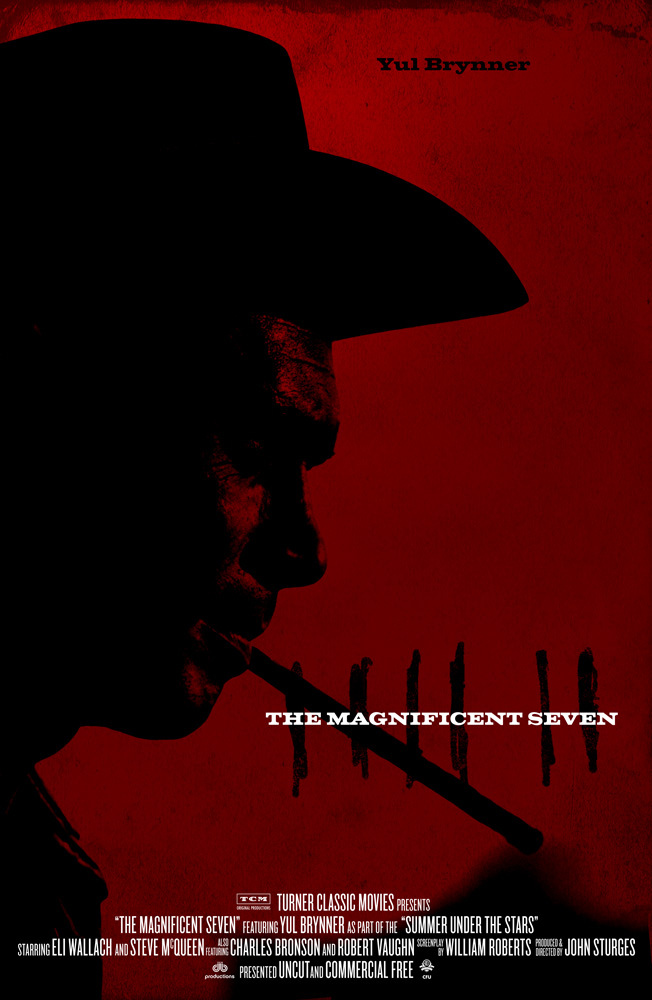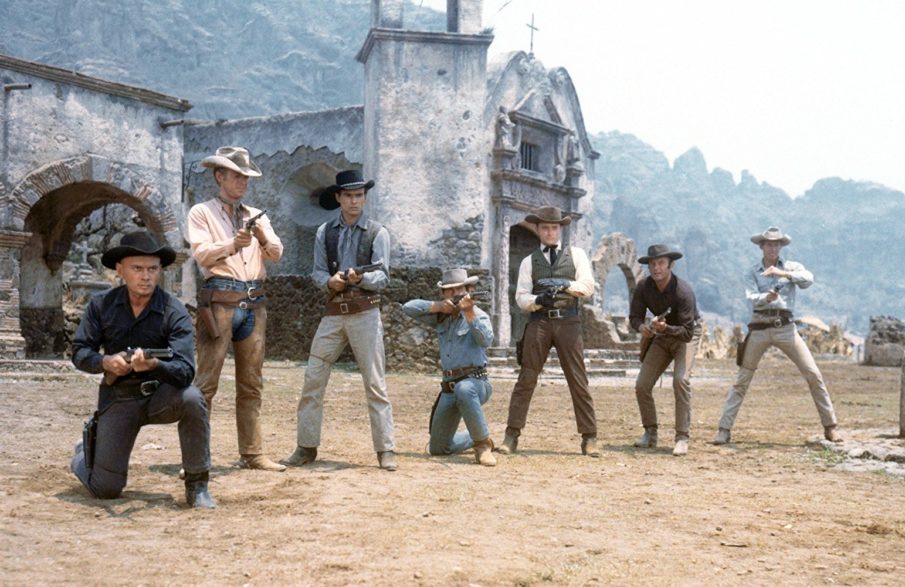If you haven’t seen the movie, don’t spoil it here — watch it first, then come back.
“The Magnificent Seven” by John Sturges is a reimagining of one of my favorite films, “Seven Samurai.” Instead of a tumultuous time in old Japan, “The Magnificent Seven” is set in the Old West, just across the border and into Mexico. A dirt-poor farming village is threatened by bandits who continuously rob them of their food and resources, and kill anyone who steps up against them. The leader of the bandits says in regards to the villagers: “If God didn’t want them sheared, he would not have made them sheep.” Several of the Mexicans travel up into the U.S. and return with seven gunmen who aim to scare away the bandits or kill them if they have to. They all have their different reasons for coming along.
This classic film has been remade before — most recently by Antoine Fuqua in 2016, starring Denzel Washington, Chris Pratt and Ethan Hawke. It was also made into a TV series in 1998.
Like the Sengoku period in which “Seven Samurai” is set, “The Magnificent Seven’s” Wild West was a lawless, violent time and place in U.S. history, and just over the border it was no different. The men of the movie decide to risk their lives for little more than a few dollars and some food. They are all deadly killers, and most have lived long lives of blood and torment. They have been paid every which way to take the lives of others, and yet here they find themselves on a job that might as well be pro bono.
And still they decide to go. They do away with machiavellianism, with the easy or the purely intelligent decision. They fight with their hearts, bodies and minds, but if they were really concerned with their own futures and well-beings above all else, then they would not have taken the job in the first place. It would have been very easy (and in many peoples’ minds smart) to just say no.
Sometimes these days we get so caught up in doing the smart thing, we forget to ask if it’s the right thing.
For the protagonist Chris (played by Yul Brynner), this is as simple as having someone ask for help. He is humbled by their request for aid — they admit that they can’t offer him much money, or even food, but what they do have, they will give. If he helps them, they will give him everything they have. To this he responds, “I have been offered a lot for my work, but never everything.” And he accepts. For those who are willing to give everything, he will willing to sacrifice everything in return.
And in the end, they do win. The bandits are routed and the warriors go on their way. They have lost friends — brothers in arms by the close of the film. To this, Chris somberly says, “The old man was right. Only the farmers won. We lost. We always lose.” And this is the feeling many warriors who return from the battlefield with their lives can empathize with, though it does not always manifest so dramatically.
And yet they leave with the knowledge that they fought for a cause worth fighting for. In the material sense, they came out with much less than they started with. One has a bullethole in his leg, and all of them lost friends, not to mention supplies needed to survive a world like that. But in the sense that matters to men like them, they left with a whole lot more than they started with.

Images courtesy of 1960 MGM/UA, 20th Century Fox, via IMDB.
Already have an account? Sign In
Two ways to continue to read this article.
Subscribe
$1.99
every 4 weeks
- Unlimited access to all articles
- Support independent journalism
- Ad-free reading experience
Subscribe Now
Recurring Monthly. Cancel Anytime.


COMMENTS